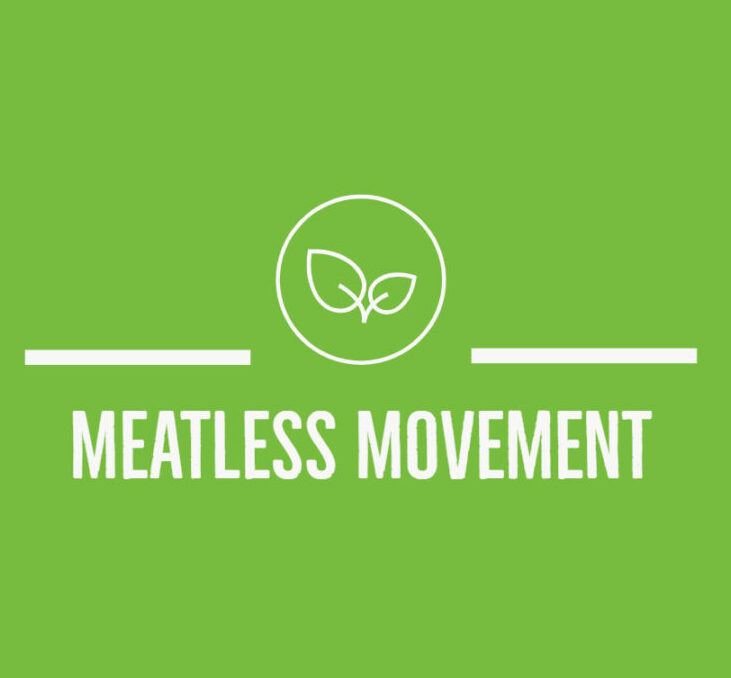Vegan in China is a supportive space for vegans and the veggie-curious in China. Meatless Movement recently had a chat with the founder, Alex.
Alex told Meatless Movement that many people don’t believe her when she says that China is one of the easiest countries to find vegan food. According to Alex, China actually has a long history of vegetarian cuisine, and they do it well!
Tell us more about yourself, please
My name is Alex and I’m originally from Vancouver, Canada. That being said, I’ve moved around a lot. I’ve spent most of my adult life in Europe, had a nomadic stint where I moved around South America for several months, and now I call Beijing, China home.

My goal with Vegan in China is to show people how easy it is to eat plant-based in a country so famous for its meat dishes
Vegan in China
Sometimes it seems like China is so far behind the rest of the word when it comes to environmentalism and veganism, but I don’t think that’s necessarily true. I started Vegan in China as a sort of personal diary on Instagram last year to record all of the delicious vegan food I was finding, as well as all the milestones this country is making towards a more plant-based future. What started out as a passion project is slowly growing into a valuable resource for vegans or veggie-curious folk.
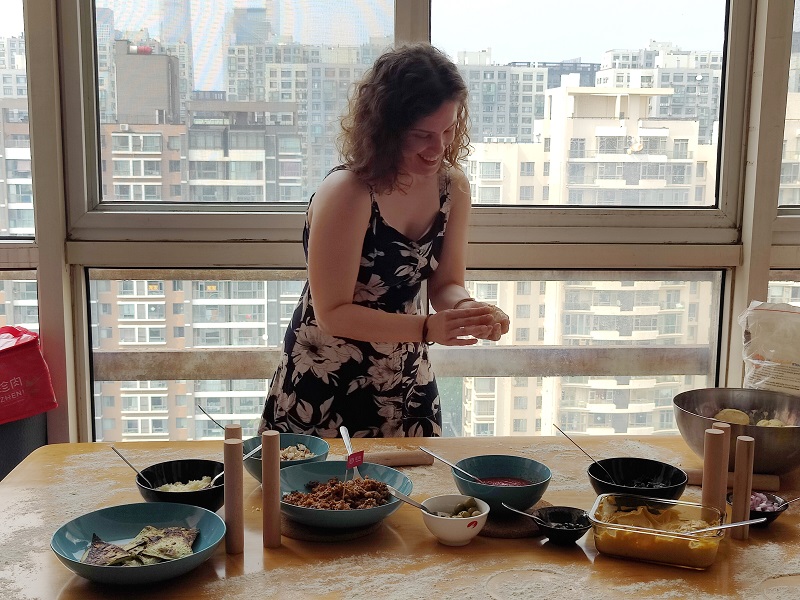
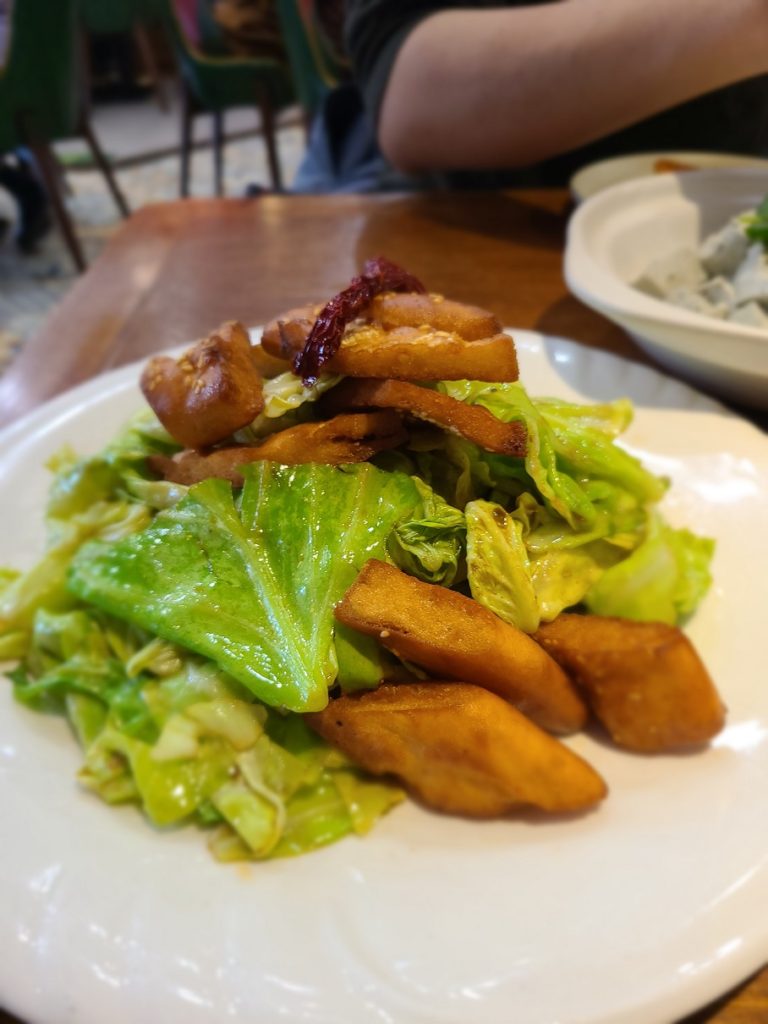
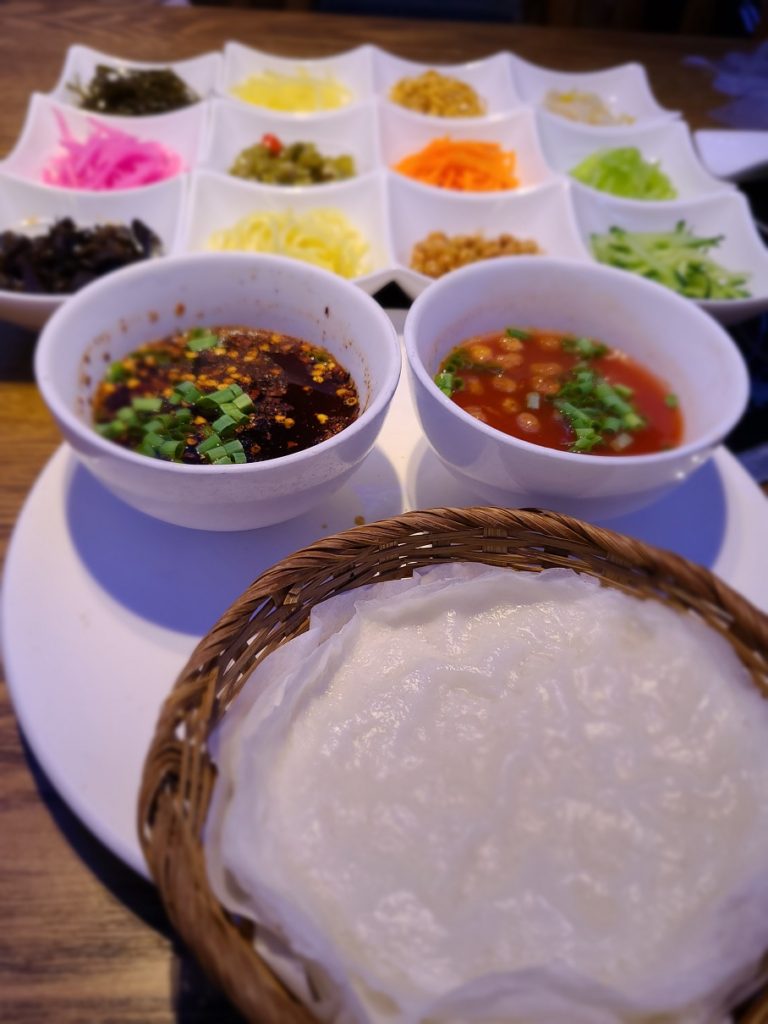
When I moved to China, I had been vegan for only a few months. Many people wished me “good luck” laced with tones of disbelief when I said I planned to continue being vegan here. I’m a bit of a stubborn person, so I took their scepticism as a challenge. I’ve definitely made some mistakes along the way (about 6 months into living in China I found out that many places cook vegetables in lard…but whyyyy??), but overall I am proud of myself for sticking to it!
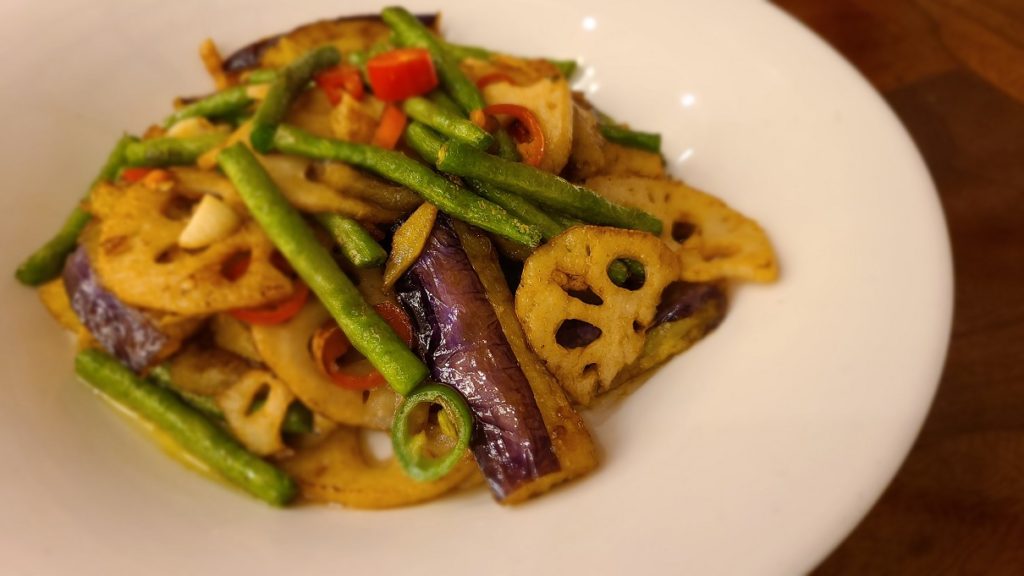

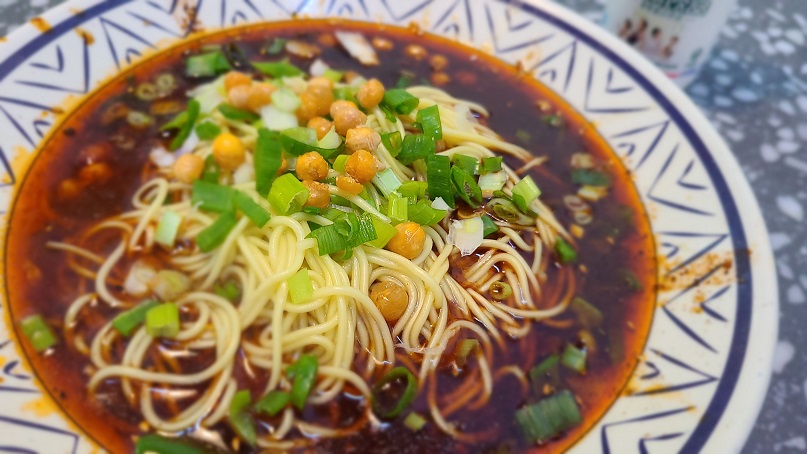
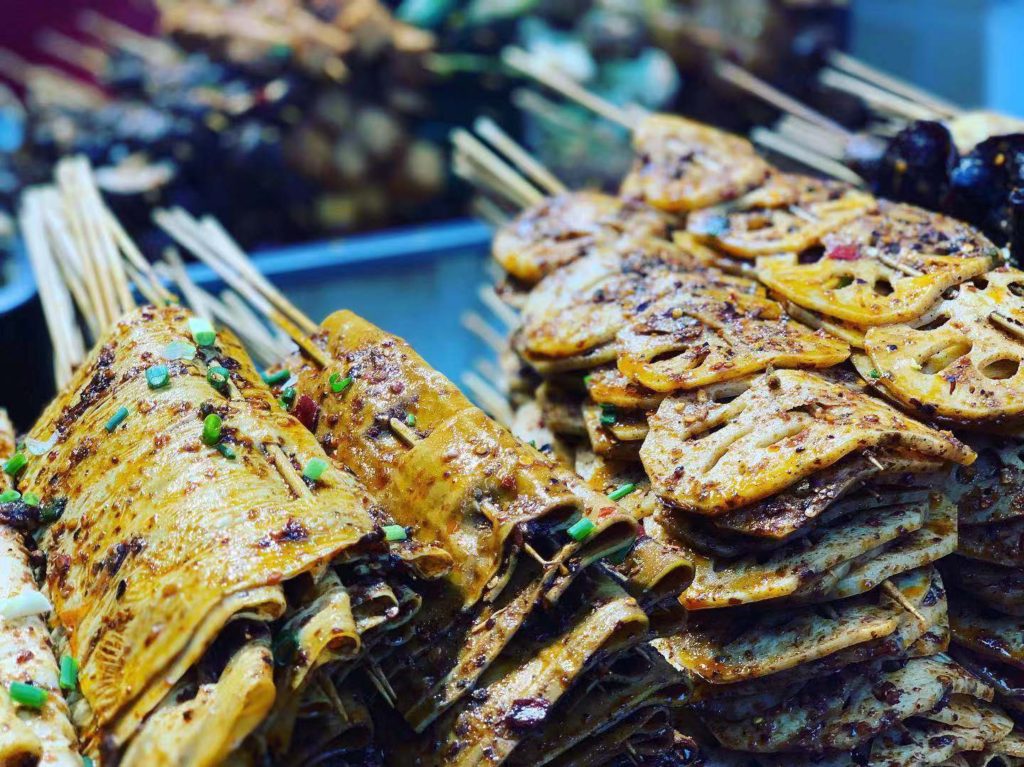
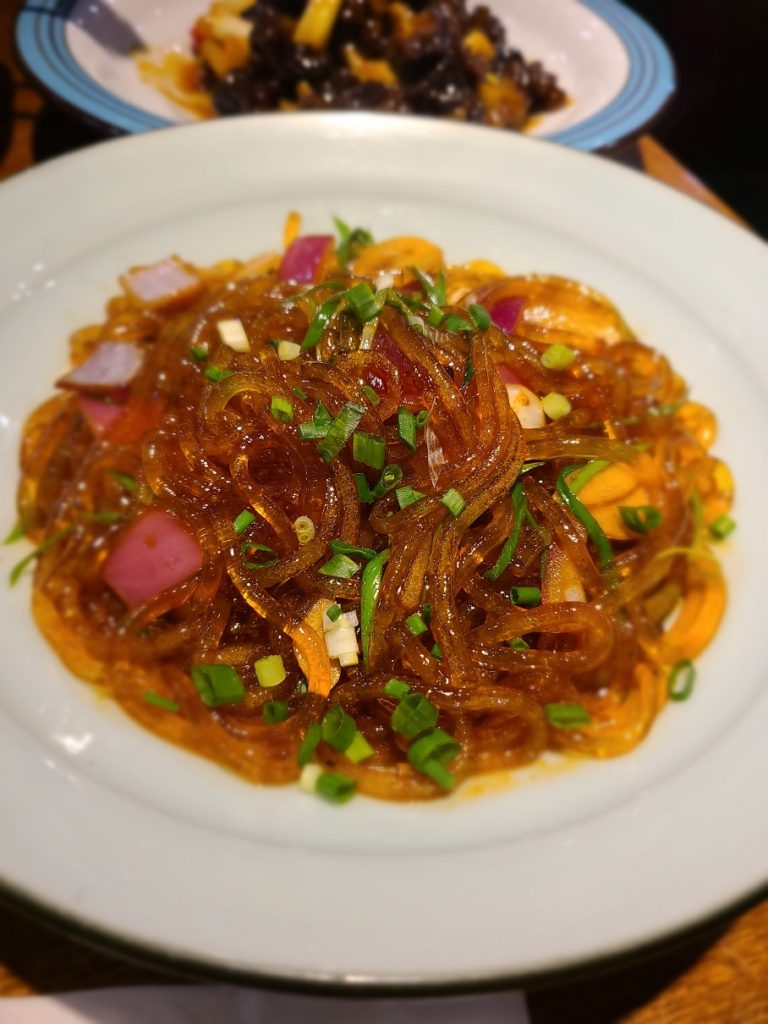
As I became more exposed to vegan and vegetarian food, I became confronted with the cruelty and destructive practices embedded in our food systems
Vegan in China
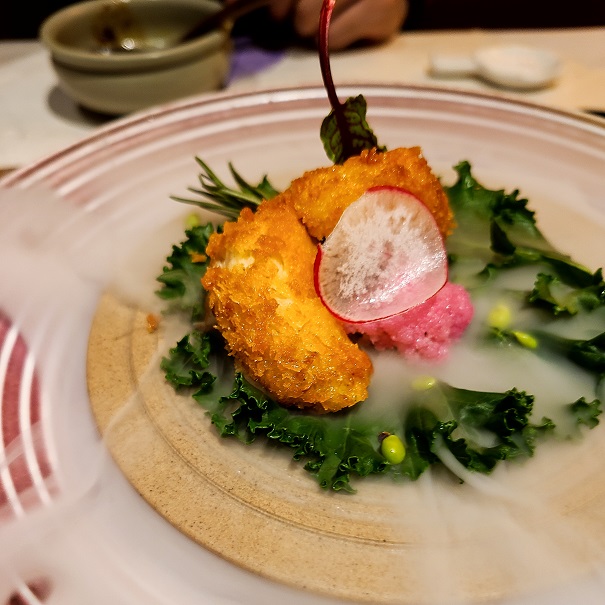
I first was introduced to vegetarian food when my friend who had just been diagnosed with celiac’s disease (gluten intolerance) invited me to lunch at The Green Door in Ottawa. Neither of us was veggie, but this restaurant was particularly conscientious about allergens, which made her feel more comfortable. It was the first time I had ever been so thoroughly satisfied with my meal without there being meat on the plate. I was absolutely amazed, and knew I needed to learn to cook in this way.
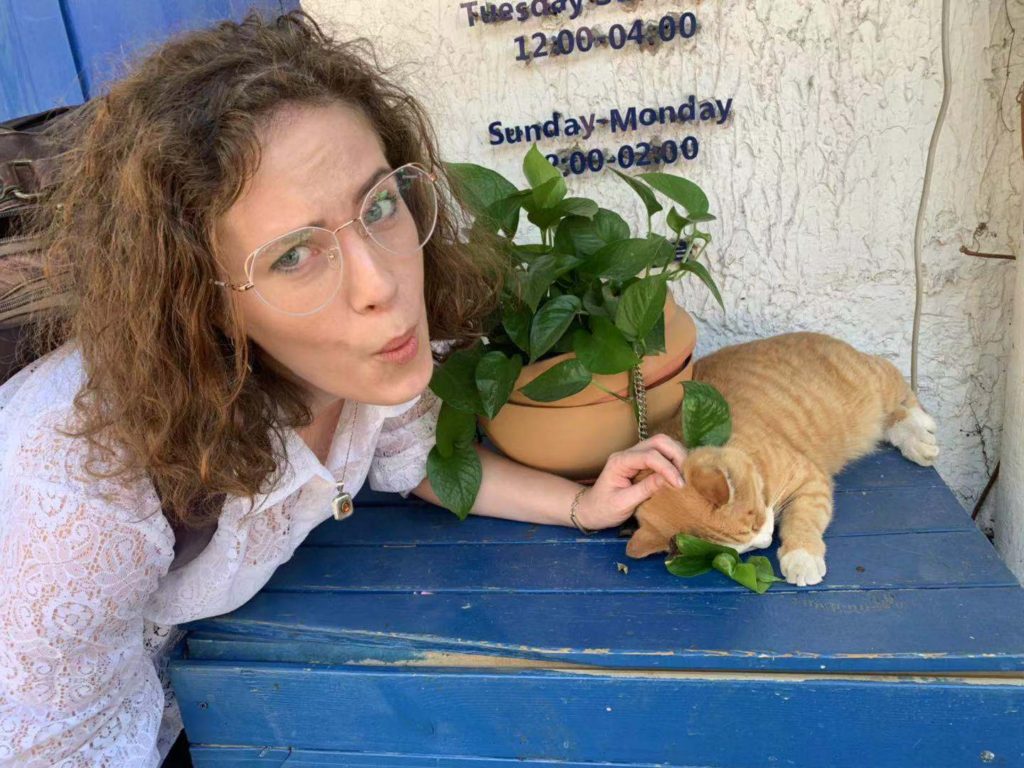
I then set myself the challenge to only eat meat twice per week in order to push myself to learn to cook in a completely different way. Before, meat or fish had always taken center stage on my plate, but because meat alternatives back in 2012 were admittedly pretty nasty, I really had to rethink food and get creative. Youtube channels like Hot for Food and The Happy Pear were my main sources of inspiration.

As I became more exposed to vegan and vegetarian food, I became confronted with the cruelty and destructive practices embedded in our food systems. I gradually started cutting out meat, then eggs, then fish and finally dairy. Initially I was only a vegan at home because the social aspect was very difficult for me. I was living in Spain at the time, and the food culture is all about sharing tapas, most of which include some form of pork, seafood or other animal products. I gradually started saying no to certain dishes, until finally I decided eating to please others was no longer acceptable to me. When I told my friends, I was surprised to find they were all quite accepting, some even saying they had expected it. I still joined them for beers, but I would just eat beforehand, or make sure to choose a place that had something I could nibble on.

I have now been vegan for over three years, and I’ve never looked back. It’s definitely one of my proudest accomplishments.

What are the biggest challenges for a vegan diet?
I absolutely loved trying new, exciting and even bizarre dishes
Vegan in China
I am a spontaneous person by nature, and so one of the hardest things for me when I first went vegan is that I could no longer just walk into any restaurant and order whatever. Actually, I’m really happy to live in Beijing because I can be spontaneous again. As long as I choose a Chinese restaurant, I’m almost guaranteed to find something delicious. Ironically, it’s in the Western restaurants in Beijing where I run into the most trouble as a vegan. Chinese food is quite easy to veganize, and there are lots of vegetable and tofu dishes. The Beijing interpretation of Western food is often very meat and dairy heavy, so I always have to look up the menu before I accept invitations to those restaurants.
Like I said before, the social aspect of veganism was the hardest thing to manoeuvre, but in my experience it’s more about me worrying how other people perceive me, and less about me actually bothering other people. In China it’s customary to share dishes, but I always just make sure that there are some vegan dishes that I can eat. These days China is big on excess, and sometimes it’s hard to see all the meat on the table that sometimes doesn’t even get eaten (I always try to bully everyone into getting it packed up though). Luckily, most of my friends are open-minded and usually agree to a vegan meal with me (I am a vegan food blogger afterall, they should trust me!).


How do you feel about being a vegan?
Most of the time you’re more a burden in your own head than in those of others
Vegan in China
Going vegan is one of my biggest accomplishments. I remember that even as a child I wanted to be vegetarian, but when you’re brought up in a society that hides how your food is actually made, it’s so easy to dissociate the meat on our plates from those adorable animals.

To me, being vegan means being compassionate towards not only the animals, but also to our fellow humans and the environment. I try my best to resist purchasing fast fashion because of the abhorrent working conditions of the workers and the waste that infects our ecosystems. I’m far from perfect, and I often fall prey to convenience culture (one-use plastic is extremely hard to avoid in China), but everyday I try to reflect on how I am doing good, while also holding myself accountable to doing better every day.
Recommend your favorite vegan food
I get really excited when I can get my hands on a distinctive dish that’s vegan
Vegan in China
Liang pi – I eat this dish multiple times a week when the weather gets hot. It’s so refreshing. Chewy, cold noodles with sesame paste, chilli oil and some vinegar sauce topped with spongy gluten and cucumber. I can’t get enough, which is just as well because it’s usually quite a cheap dish 10-20 RMB (Under 5 USD).
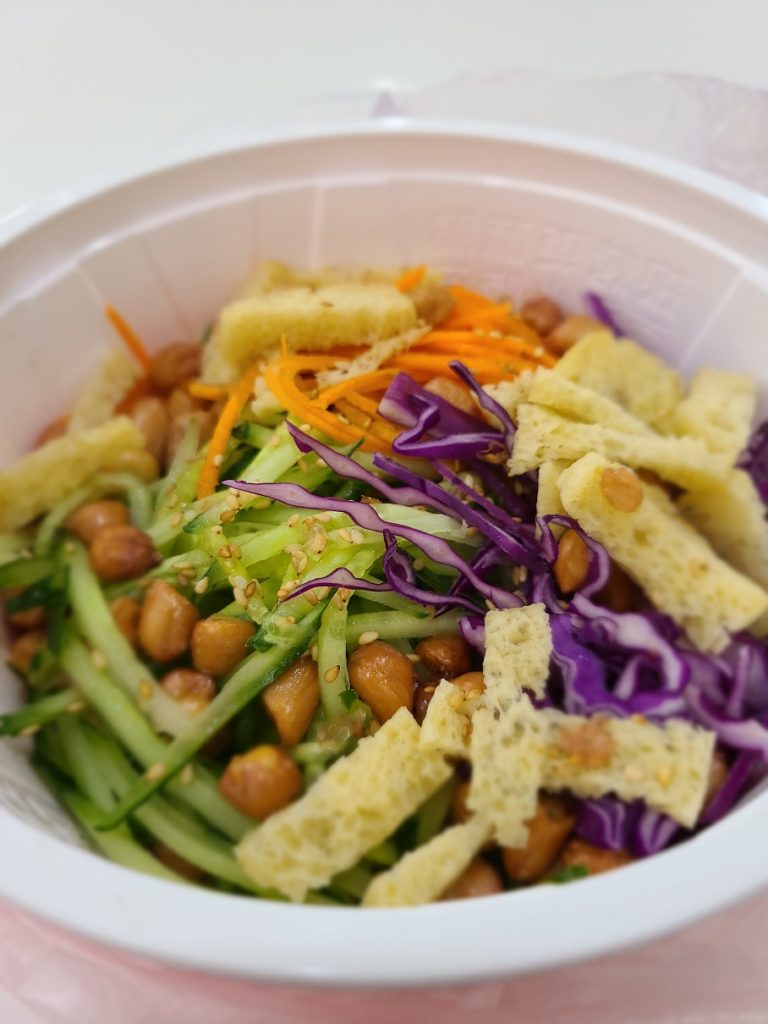
This one is controversial, but I LOVE stinky tofu. I wasn’t a picky eater before going vegan, and would have tried anything, and this dish fulfils that adventurous side of me.

I love Chinese food, but sometimes you just need some Tex Mex. I love the vegan selection at Qmex Taqueria in Beijing. I’m not a salad girl, but their vegan chicken kale salad is AMAZING. The “chicken” is very realistic, and I love how it has a lot of roasted veggies!

Myths about vegan diets
A lot of people think that a vegan diet is restrictive, but I think that’s a mindset problem more than a food availability problem. When I first went vegan, there were not nearly the amount of products available as there are now, and I was in some ways more “restricted” to whole foods – but even back then I think my diet got even MORE diverse. Just think, most people eat the same three or four animals, but as a vegan I’m eating 10-20+ different plants! And spices are vegan, so you can flavour those plants in just as many ways as you did your meat!

Another thing people worry about a vegan diet is protein, especially with tofu/soy as a main source of plant-based protein. What about estrogen in soy? Can’t it cause cancer? Actually, soy contains phytoestrogens that have been linked to reducing the likelihood of cancer. It’s the hormones from animal products you should be more worried about. Just ask Harvard.
How to Ease Into Meatless Eating?
Come watch me taste vegan beef jerky, cranberry seaweed, fruit jellies and some crazy flower flavoured Oreos!
Vegan in China
While some people have the willpower and stamina to go vegan overnight with amazing success stories, I don’t think that’s the case for most people. I advocate for incremental, sustainable change. Remove things from your diet little by little, and set achievable goals.
I recommend not jumping to substitute vegan meats or cheeses into your regular meals. While plant-based meats have come a long way, your first instinct is going to be to compare with the “real thing” and that’s often going to end in disappointment. It’s not that vegan substitutes aren’t tasty, but it’s not a fair fight to compare them with your all-time favourites. Instead, look for recipes that are completely new to you but have flavour profiles that excite you. You could also opt to make versions of your favourite dishes like lasagne, but make a mediterranean vegetable one instead of beef.


The future is coming, and it’s vegan-friendly!
Vegan in China
I have little interest in trying to convert people who aren’t interested in veganism. It’s too much emotional energy for me. However, I do think more and more people are becoming open-minded and want to make changes for their health, the animals and the environment. Vegan in China can help those living in and visiting China explore this lifestyle.

There are lots of people on social media who show off all of the special meat dishes in China – from beef hotpot to rabbit’s head – and it can seem like China is not an easy place to eat a plant-based diet. China is home to arguably the most diverse cuisines in the world, and that diversity extends to vegan dishes. I’ve been in China for almost three years, and I am nowhere near done discovering all the amazing food there is for vegans here!
Most of my audience is made up of foreigners living in China who don’t speak a lot of Chinese. Having some basic control of the language is super helpful, so I provide some language tips, but people who aren’t that confident yet can also come to my page and be assured that products or dishes are “Vegan in China Approved”.
I don’t think going vegan overnight is sustainable for everyone, but we should hold ourselves accountable at each stage of our journey
Vegan in China
While I do agree that “every little bit helps” I also have a bit of a more controversial take. I do not advocate for going vegan overnight, as I don’t believe it to be sustainable for most people, however I hope for people to understand that “reduction” shouldn’t be the ending point. It’s easy to become complacent and convince ourselves that we’ve done “enough,” but while it’s great that fewer animals are dying if we only eat one burger a week, that doesn’t really matter to that one cow who was slaughtered. If we say we’re vegetarian for the animals, but refuse to cut cheese from our diet, we are still supporting industries where dairy cows are forcibly impregnated over and over, have their babies taken away from them (who are often turned into veal or disposed of as waste), and then slaughtered when their bodies are too tired to produce anything else for our consumption.
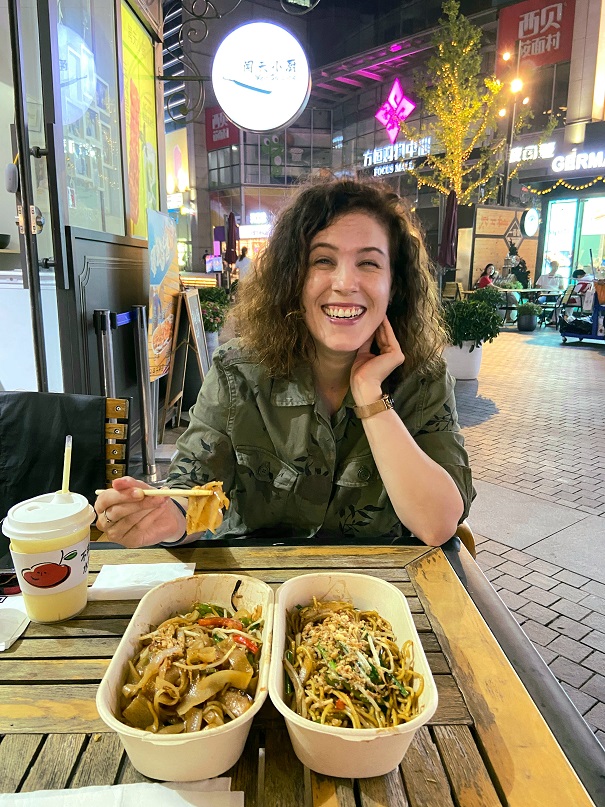
I’m not saying this to make vegetarians or flexitarians feel guilty. We deserve to celebrate our achievements and milestones, but we should still hold ourselves accountable. Just because some suffering has been alleviated by our choice to reduce our meat intake, we are still contributing to it by consuming animal products occasionally. Let’s all try to be better every day.
Vegan in China
Digital creator
A supportive space for vegans and the veggie-curious in China 🌱🇨🇳
I post NOODS every Wednesday 🤤🍜
📕China’s Vegan Michelin Guide⬇️
all images courtesy of Vegan in China
